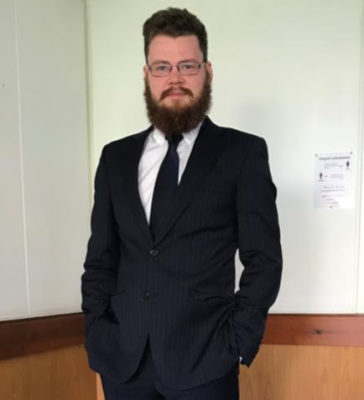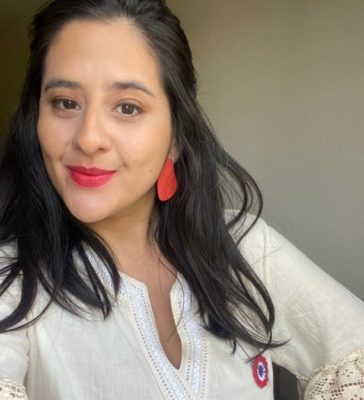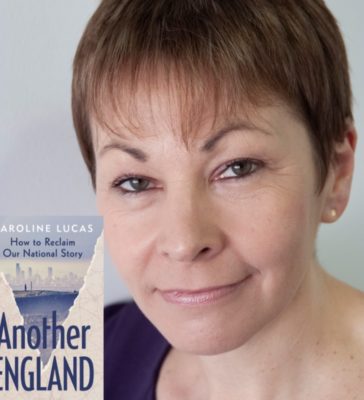
Christopher Berriman
Current Employer/Organisation Name
University of Hull
What have you been doing since leaving Exeter, and what are you doing now?
After leaving Exeter I really had no idea what I was driven to do. I had worked at a furniture company before and during university, and went back to them for a bit before deciding what I wanted to do next. I used Prospects to look through career options and settled on heritage management as something that looked interesting and captured my attention. From here I began volunteering for the National Trust for a time, but it was through my boss at the furniture company that I heard about an opportunity with a research company, whose specialisms included consulting for heritage and museum organisations. I applied and was successful, and undertook this role for a few years. I gained a lot of knowledge and experience of the museums and heritage sectors, working on a range of projects for local, regional and national clients. Projects included economic impact, audience research and business and management support. Ultimately this work made it clear that I was more keen and interested in working in the sector, rather than outside it. I determined that the best route to achieve this was undertaking a post-graduate degree, and so I applied to the University of York for an MA in Cultural Heritage Management. From here I did odd jobs in heritage, including at York Army Museum and the Yorkshire Museum, and at Cornwall Regimental Museum after completing my degree. This internship gave me a solid grasp of collections-based skills, working on interpretation and greater depth of knowledge around regimental collections. This, combined with the research I conducted for my MA dissertation led me towards my current work – conducting research into regimental and corps museums. I set out to explore ths underdeveloped history of the sector, to chart their growth as institutions, and investigate the challenges that they face. Adapting the research methods to restrictions caused by the pandemic, led me to focus on a more contemporary issue. In this I began to explore the challenges and opportunities around decolonisation, and what this means for regimental and corps museums. I am just starting out in my third year of this research.
Why did you choose this career? And what do you enjoy most about your work?
After completing my undergraduate degree I had decided a lot of related careers, such as in civil service or local government were not of interest to me. I had always had an interest in museums and heritage sites, and so a role in these areas certainly appealed to me. However, a large portion of my career trajectory has been down to stumbling across roles and being successful in applying. I have through this however, continued the underlying passion and interest in museums and heritage, and I most enjoy working with a wide range of people, and enjoy taking aspects of history and engaging audiences with the subject matter in a way that they find interesting and exciting.
Please tell us if you were a member of any societies, groups or sports clubs?
I was a member of the politics society.
What did you enjoy most about your programme and what was the biggest highlight?
The extensive variety in modules was the most enjoyable aspect of the course itself. In the first year, modules covering a range of basic political theories and concepts gave a strong foundation. In the second and third years, a wide range of specialist modules covered an expansive set of fascinating subjects including nuclear proliferation, environmental politics, war and security and history of political thought.
What did you enjoy most about studying here?
Tremough had a smaller more intimate working environment that I enjoyed, both in terms of the social dimension, but particularly in terms of the class sizes. You felt like you got to know everyone at least incidentally, and professional relationships between students and lecturers were very good. The setting is what stood Tremough out from pretty much every other campus I visited – you could not beat the views or the location in my view.
Why did you choose to study at Exeter?
Initially, Exeter was not a core choice, and honestly I was not a first choice for Exeter. I applied for politics in the main department at Streatham, and I liked the city and the campus, and the department seemed well put together. However, I was instead offered a place at Tremough. I took a trip down for a post-offer open day and I was immediately drawn in by all aspects of the university. The unique setting, fascinating open day lectures, excellent guides, and great facilities made it stand out from the crowd. Though I could not attend in my first year of applying (due to a mis-marked paper) when it came round to re-applying my experience of open days at Tremough had set it apart as the only university campus I wanted to attend.
What skills and experiences have been most useful for your career?
During my undergraduate studies I was not a confident speaker or communicator, and so pushing myself to develop in these areas has been the most useful. Working on presentations and group work through undergraduate helped lay a foundation in this regard, but it was not until later until I really developed in this area. Two elements from undergraduate have been important though. The first is the research skills gained through a 3rd year module primarily, in conducting primary research (such as through surveys, interviews etc.), which was crucial in fitting into my first research role. The second is the critical thinking skills emphasised throughout my degree – being able to critically engage with subjects and evaluate the evidence through specific lenses. This has been invaluable in my work, but especially so in my further studies.
What advice would you give to a current student who wishes to pursue your career?
There is increasing pressure and advocacy in my sector to support other pathways to working in the sector that do not rely on unrealistic career/experience expectations or unnecessary post-graduate qualifications. Having done the post-grad pathway, it has been extremely beneficial and I learned a lot through that process. However, many of the practical skills are better learned through working experience and progressing in this way is an achievable target. The most important bit of advice I can give in a general sense, is to make connections with people in lots of different areas, and make sure you advocate for yourself.
What are your plans for the future?
Currently, my priority is to complete my PhD research and submit my thesis. My hope is that through the connections I have built during the PhD with the sector itself, I will be able to secure some contracts to work on advice and guidance documents for the sector, in cooperation with sector bodies. In turn, I hope that this will lead to further consultancy style work in this and in similar areas, enabling me to work for myself. However, I am also open to stepping back into a museum-based role, ideally in collections or interpretation/exhibition programming, as I find this work very interesting and rewarding.

